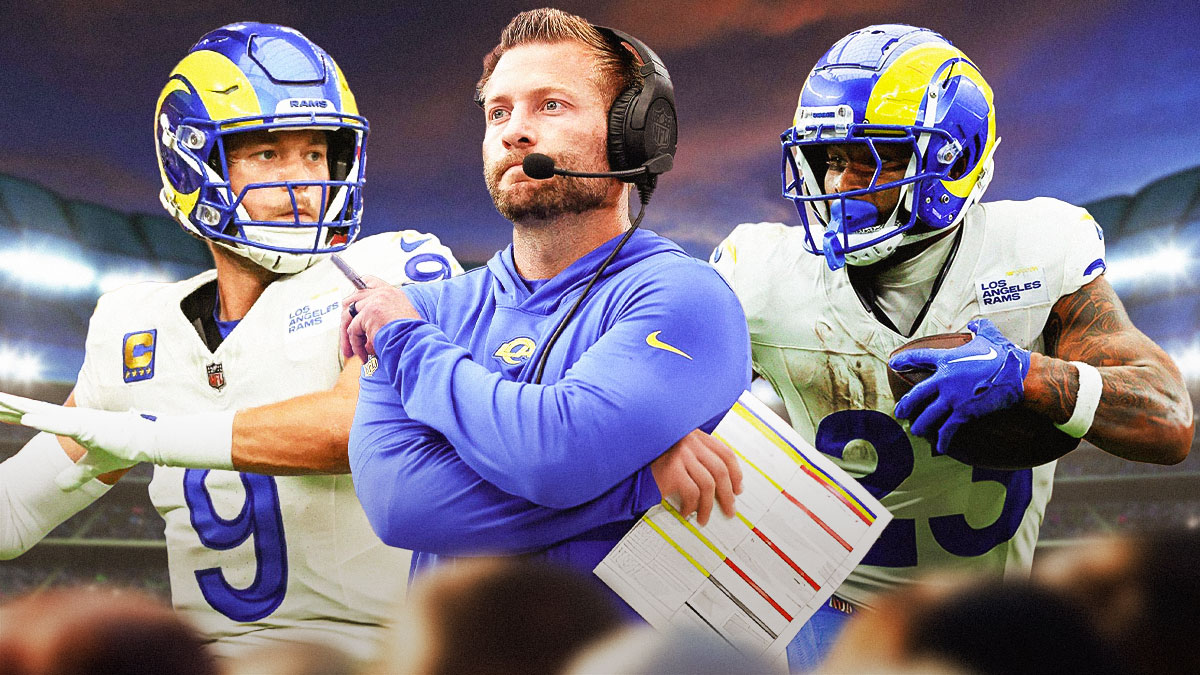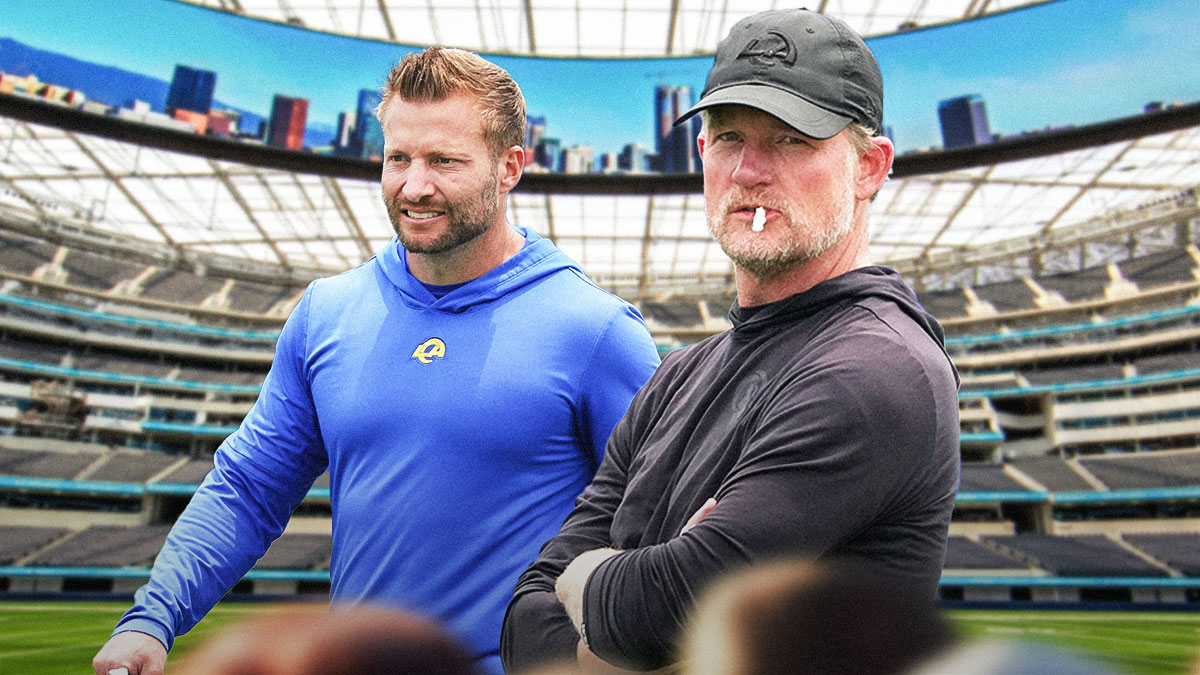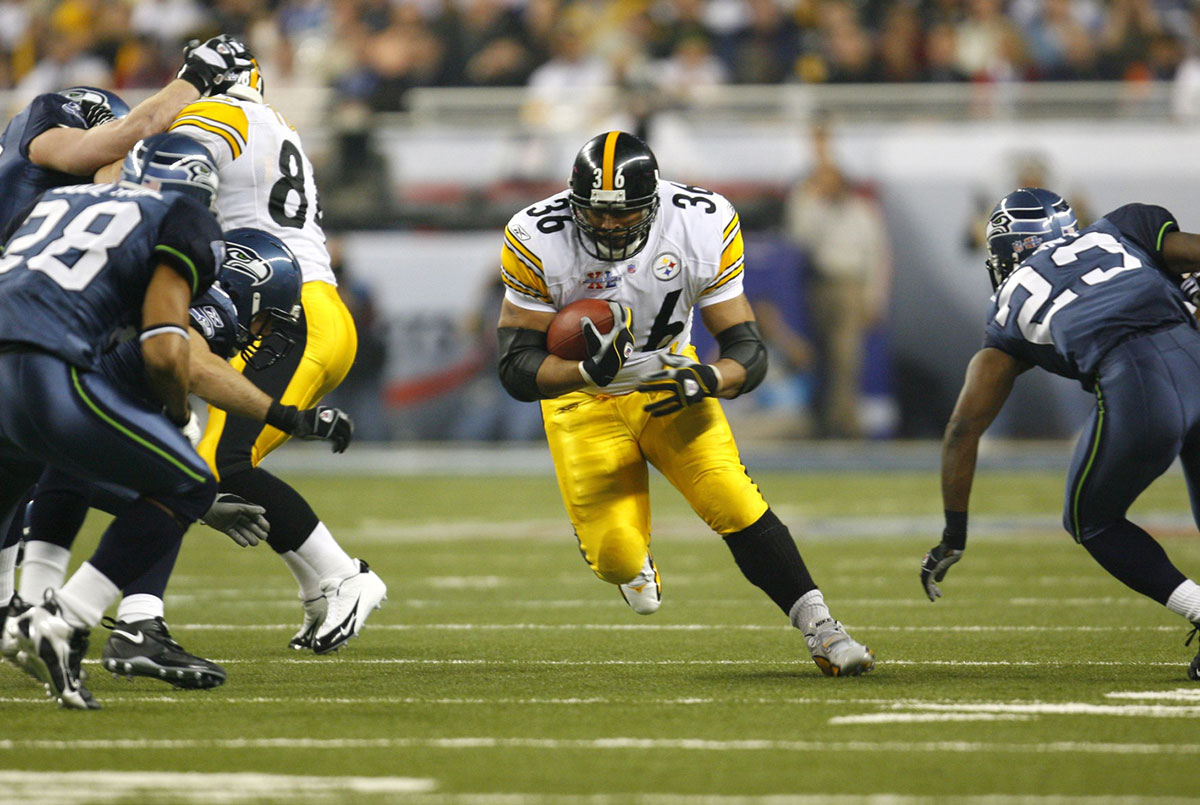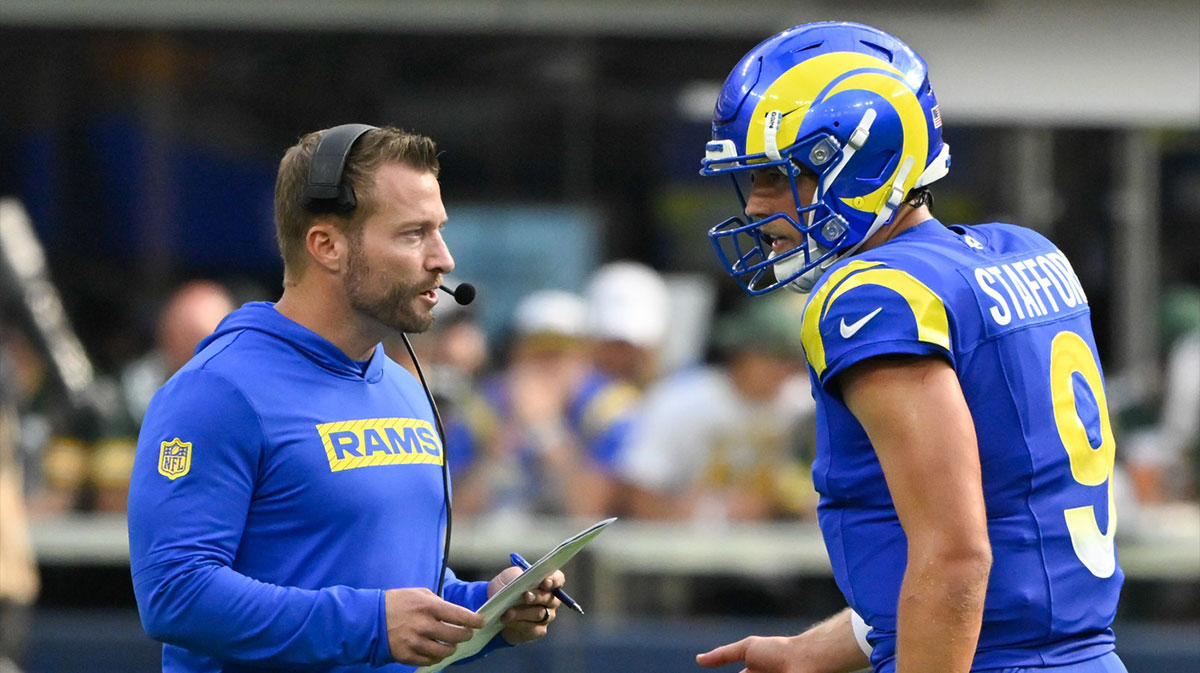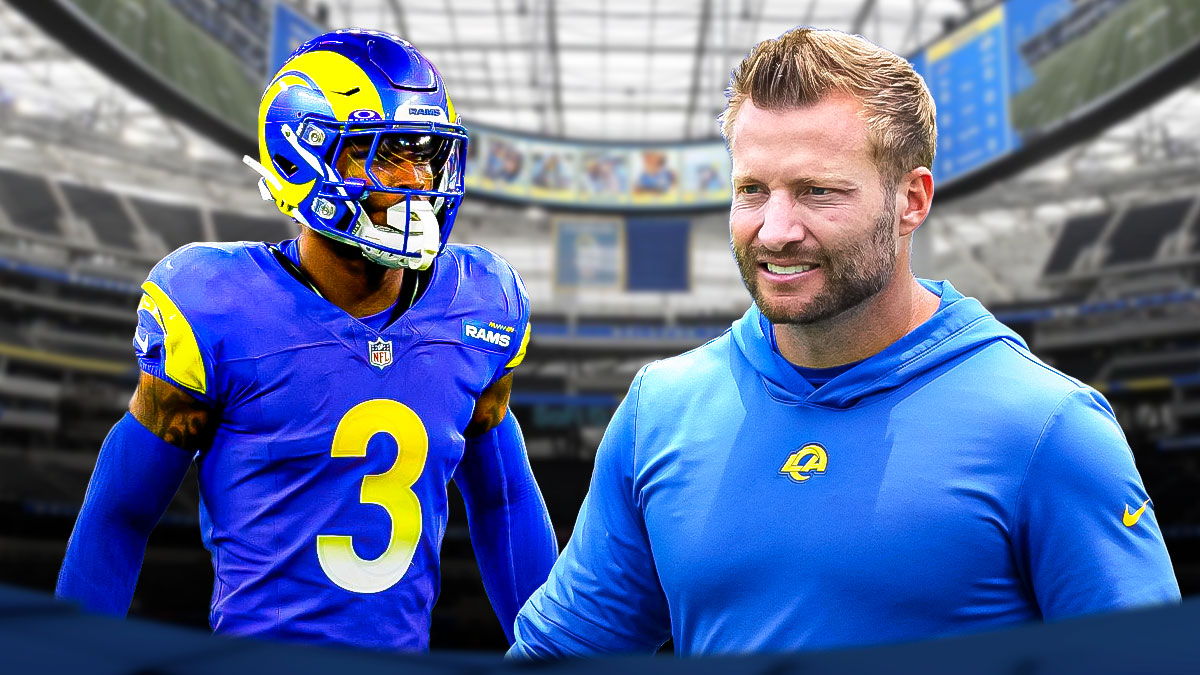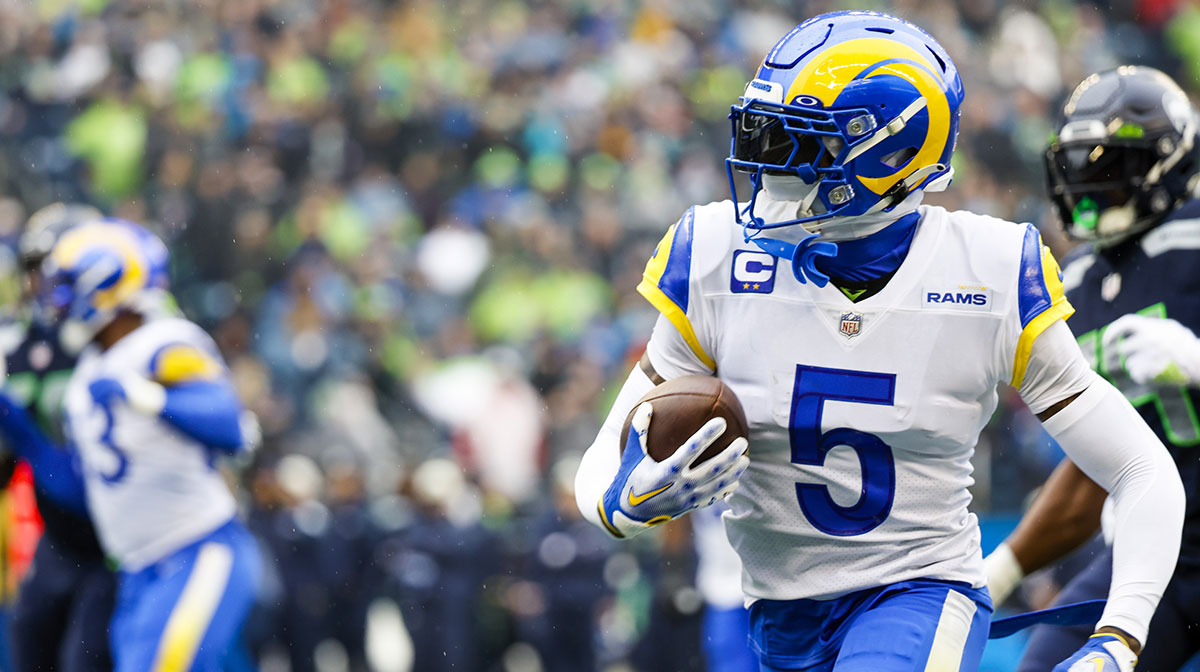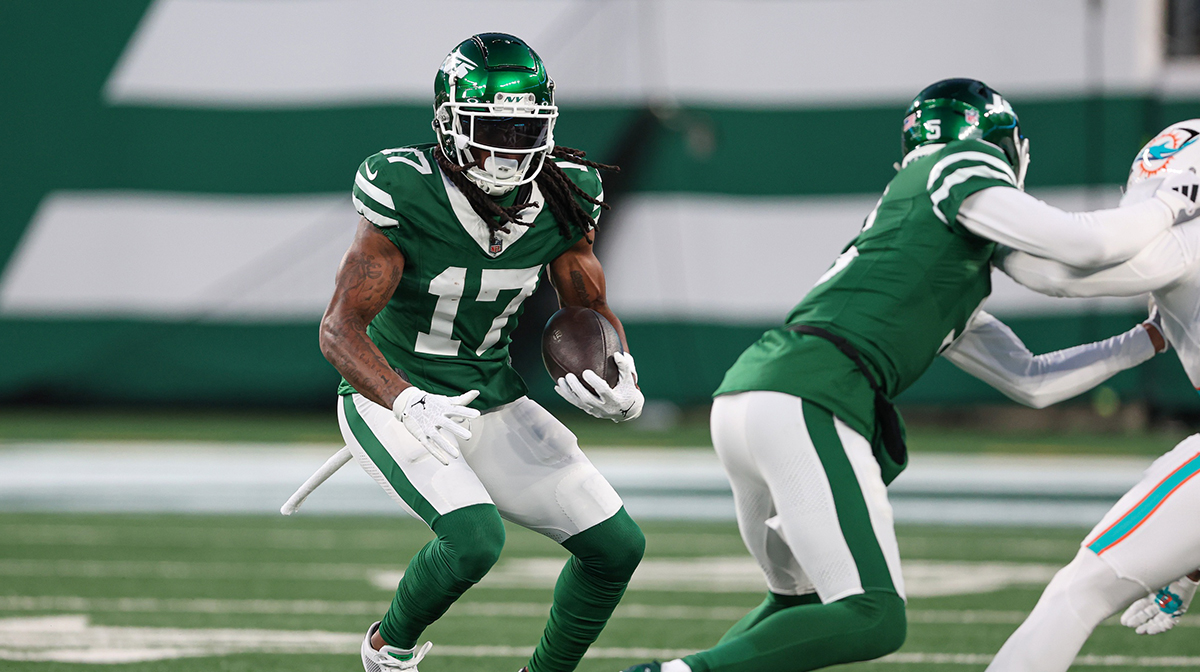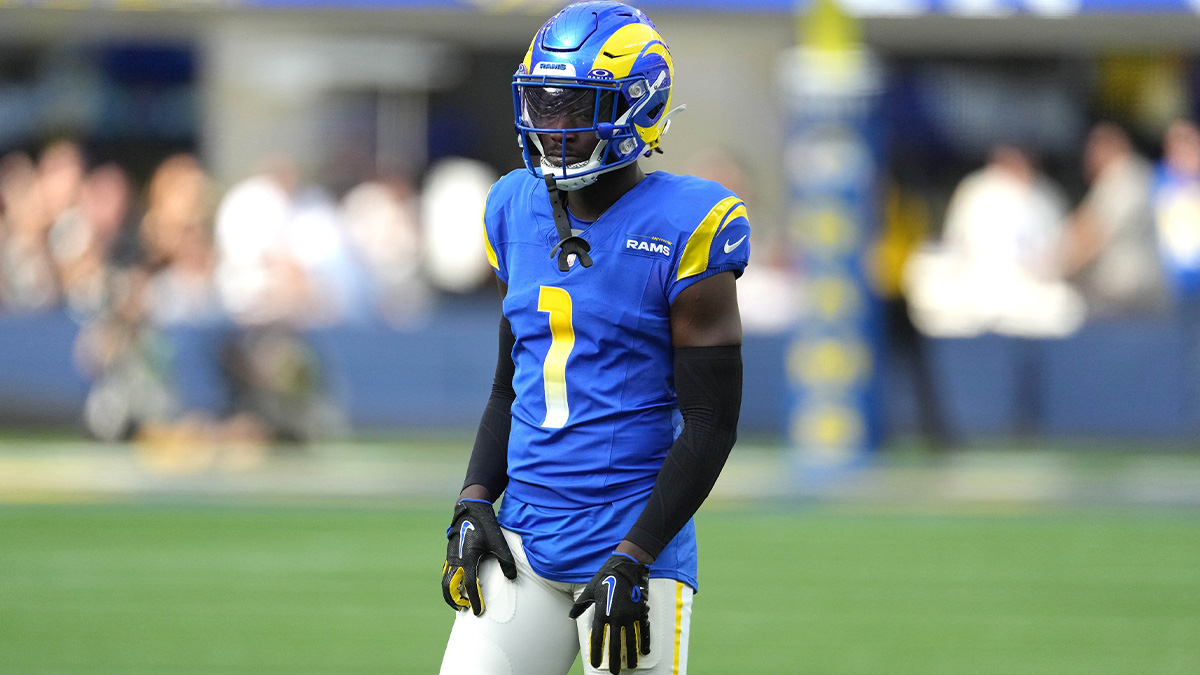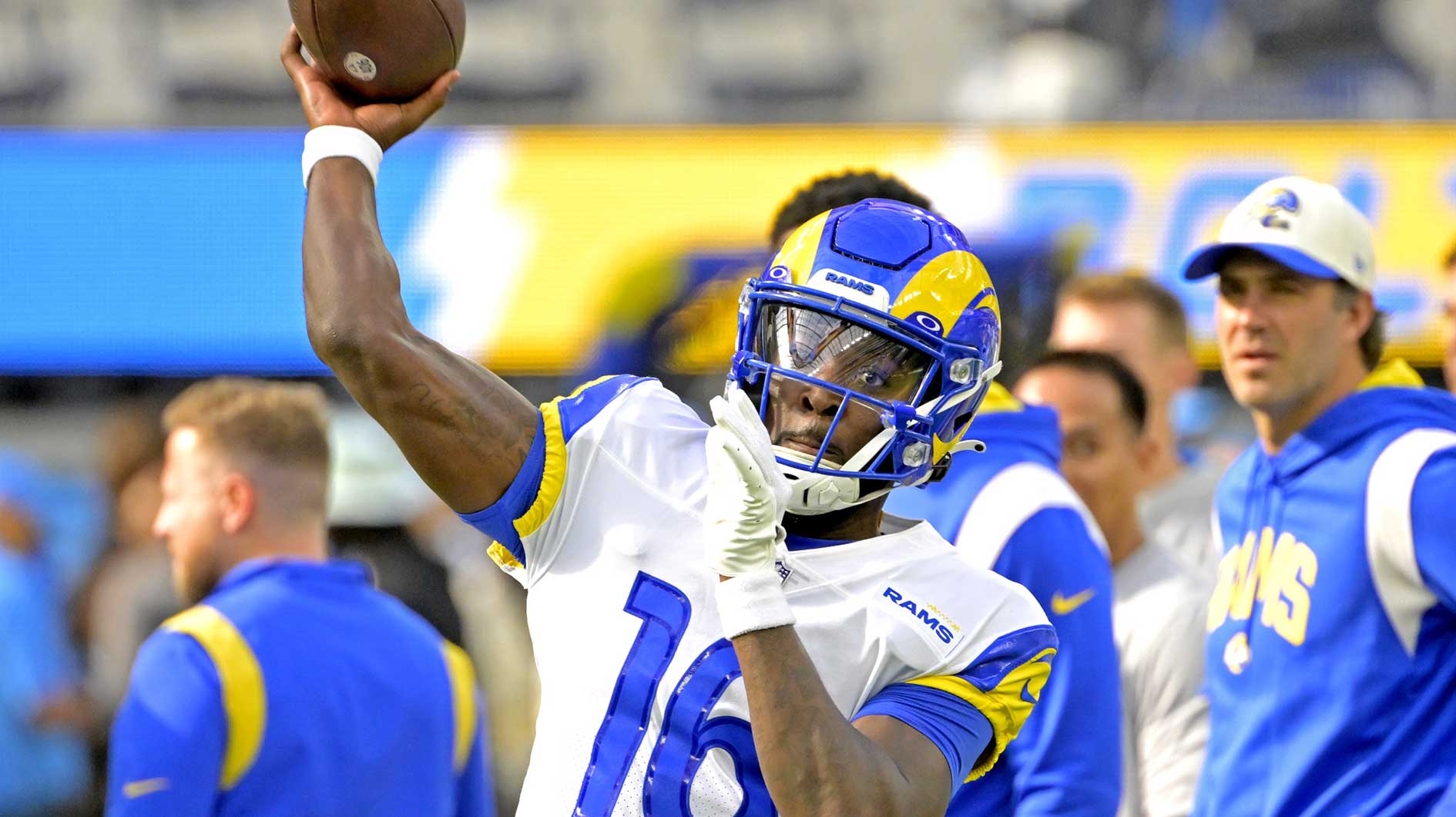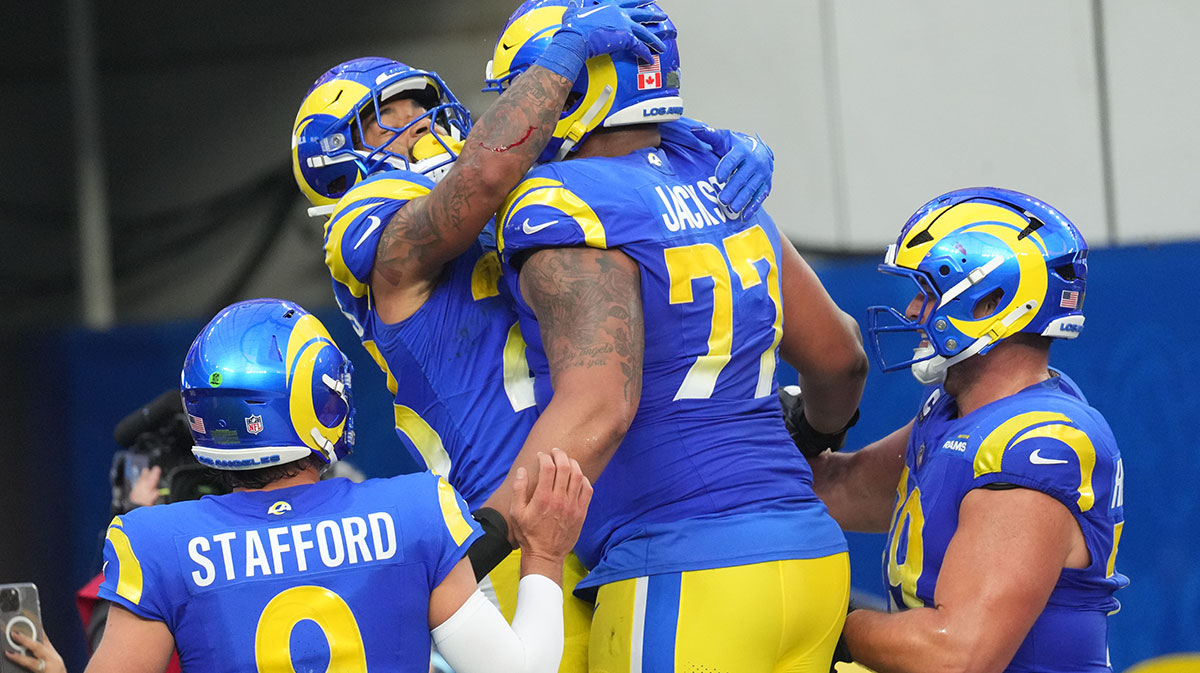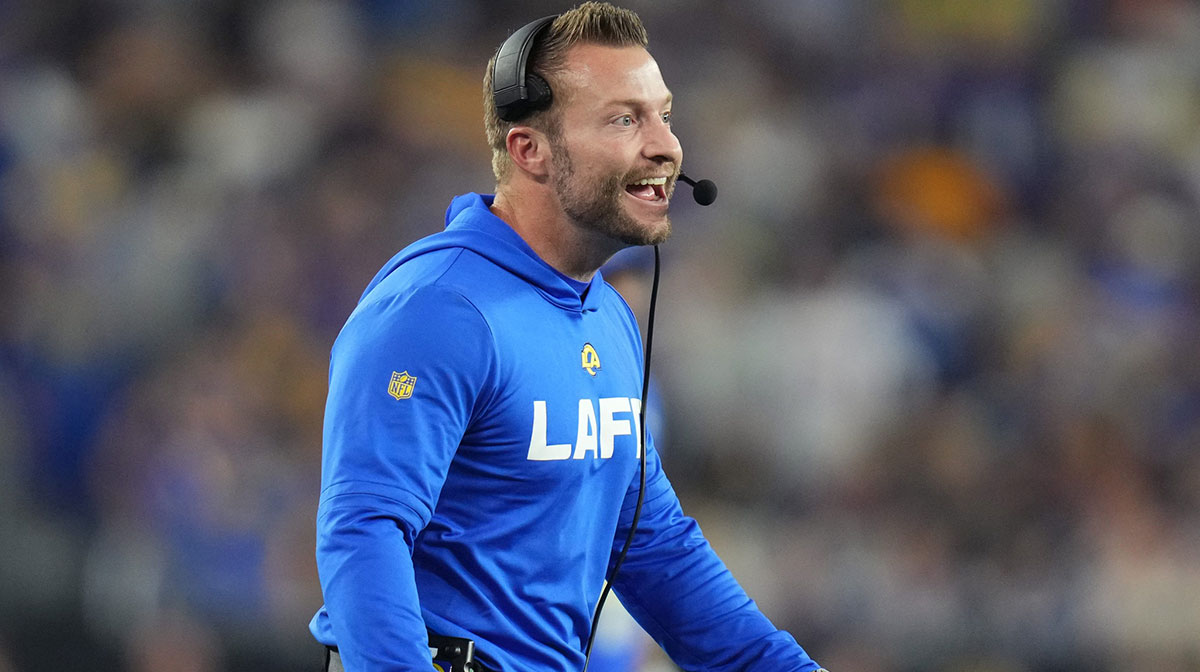After looking commendably competent in Week 1, the Los Angeles Rams were absolutely bamboozled in Week 1, falling behind early to their division rival Arizona Cardinals in the first quarter on the way to a brutal 41-10 loss.
The run defense was ghastly, the run game was non-existent, and Les Snead was forced to place another elite player on IR alongside Puka Nacua, Steve Avila, and Joseph Noteboom in Cooper Kupp, Matthew Stafford's favorite target despite the emergence of the BYU product as one of the NFL's best young talents.
With the San Francisco 49ers coming to town for the home opener and a very real chance they could fall to 0-3 before fans can say Super Bowl LVI, who is responsible for the Rams' issues, and can they hope to recover before the season comes to a premature end? Unfortunately, the Rams' issues are a whole lot deeper than a few coaching adjustments, as their offense specifically is functionally flawed due to a mounting list of injuries.
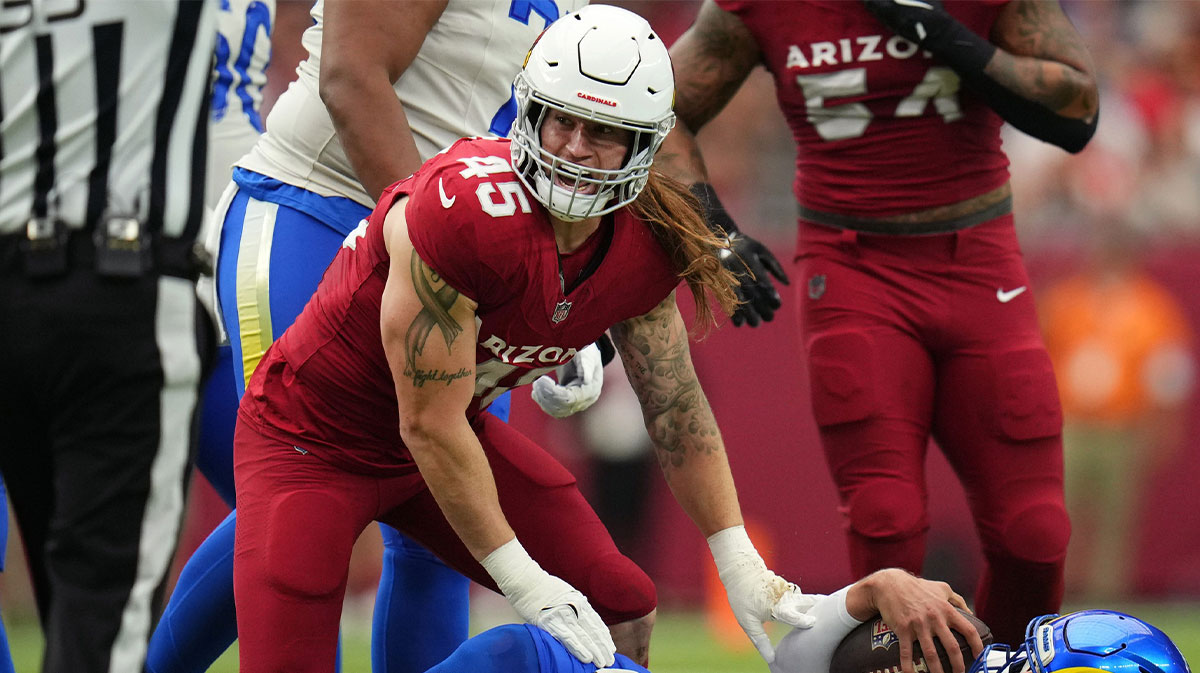
1. The Rams can't give Matthew Stafford a clean pocket
In Week 1, the Rams were able to overcome suspensions, injuries, illnesses, and ill decisions to make it a game against one of the best teams in the NFC, taking it to overtime before taking a bow to go 0-1 right out of the gates.
Why were the Rams so effective in that game? Well, it wasn't because of their pass rush, their offensive line, or their run game but instead the masterful efforts of Matthew Stafford, who looked cool under pressure against in former team while shooting daggers into tight holes to the likes of Demarcus Robinson, Tyler Johnson, and Cooper Kupp.
In Week 2? Well, Stafford still looked like an elite point guard, distributing the ball where it needed to go efficiently, but goodness, he sure didn't have much time to do it, as he was sacked five times and pressured on an astounding 40.6 percent of his snaps.
Needless to say, the Rams aren't winning many games when Stafford has that unfortunate stat line.
Asked about why the Rams had so much trouble keeping the pocket clean for Stafford in Week 2, Sean McVay broke down the team's issues, noting that while Stafford “kept battling,” his team simply let him down.
“Some of those were just fast beats. It is tough. You can’t really get anything going if you don't have the opportunity to let stuff develop, and we have a lot of guys in some different spots, but it wasn’t good enough,” Stafford told reporters. “I try not to reflect on some negative things from the past. He kept battling. Today was, like I said, not a positive day. I am not going to have a lot of answers because I need to be able to figure some (things) out myself. Today was not good. You can’t get Matthew hit that quickly. We have to be able to do a good job. Like I said, it always starts with me. We will look at the film, and then we are going.”
Sure, the Rams had two backups starting in Week 1 in Warren McClendon Jr. and Beaux Limmer, and sure, Jonah Jackson was technically playing out of position too, but Los Angeles simply can't expect Stafford to run two-minute drills the entire game, especially when he's throwing to new targets every darn game now that his top-two wide receivers, Nacua and Kupp, are both on IR.
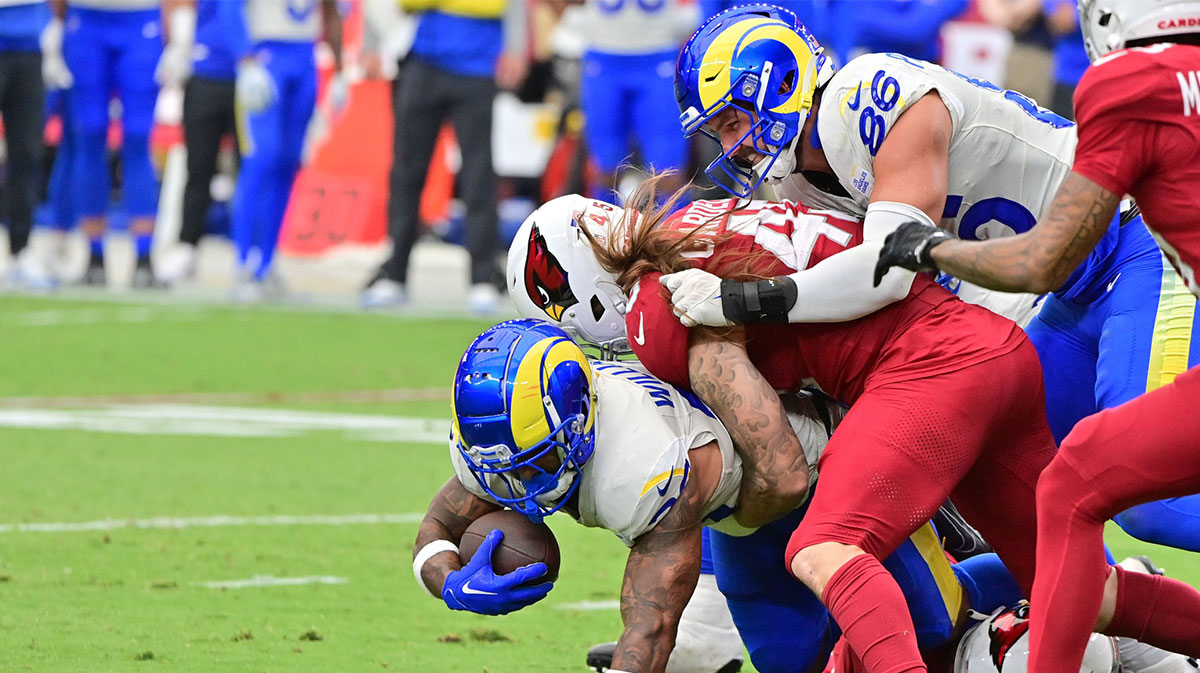
2. The Rams' run game can't get going
While the Rams' offensive line has severely limited Stafford's effectiveness as a passer, as he can't cleanly execute some of the deep vertical concepts McVay would like to call without being taken down with the ball in his hands, the uncertainty up front hasn't just limited his production but also taken away his best friend in the business: the run game.
That's right, where a team would typically double-down on the run game when they are constantly under pressure in order to force opposing coordinators to change their game plan, load up the box, and free up one-on-ones on the outside, the Rams simply haven't been able to capitalize on their talented stable of rushers.
You see, despite having one of the most exciting young backs in the NFL, an established backup, and a third-round rookie who finally saw action in Week 2, the Rams simply aren't finding success on the ground, with just 136 yards recorded on 43 carries for an average yards per rush of just 3.2. As bad as that sounds, the averages get even worse, as the Rams don't have a single run that went longer than 12 yards, with both Williams and Corum capped out at nine-yard runs in a seemingly unimaginable sign of on-field mediocrity.
What gives? Is the Rams' offensive line just not opening up holes for their running backs? Or are the running backs failing to capitalize on the production that is there? Is LA abandoning the run in order to try to pick up chunk plays through the air, especially in games like Week 2, where their chances of a comeback victory went down considerably with each passing punt?
Asked this very question during his media availability session, McVay let it be known that the issues don't fall solely on one set of shoulders, as no one on the team is playing up to the team's standards at the moment.
“I think everybody has a hand in that. It starts with me putting guys in better spots. We have to be able to do some different things but stay connected, handle movement, play as hard as we can to be able to get a body on a body and give ourselves a chance,” McVay explained to reporters. “We had a lot of free hitters. [We] didn't handle some of the movement that Arizona presented. Those are things that can all be corrected, but we have to execute. The margin of error was slim. We didn't play well enough on offense or defense to give ourselves a chance. There were some bright spots special teams-wise, but for us to be down as quickly as we were, and then you get out of the flow of the game.”
If the Rams could pick up yards on the ground, maybe it would make things easier for Stafford under center. If Stafford was picking apart defenses with ease from within the pocket, maybe run games would have been easier to capitalize on. And if the offensive line functioned at all, maybe both the running and passing game would shine as fans expect them to. Be concerned, fans, for if things don't change for the better, the product on the field won't either.
